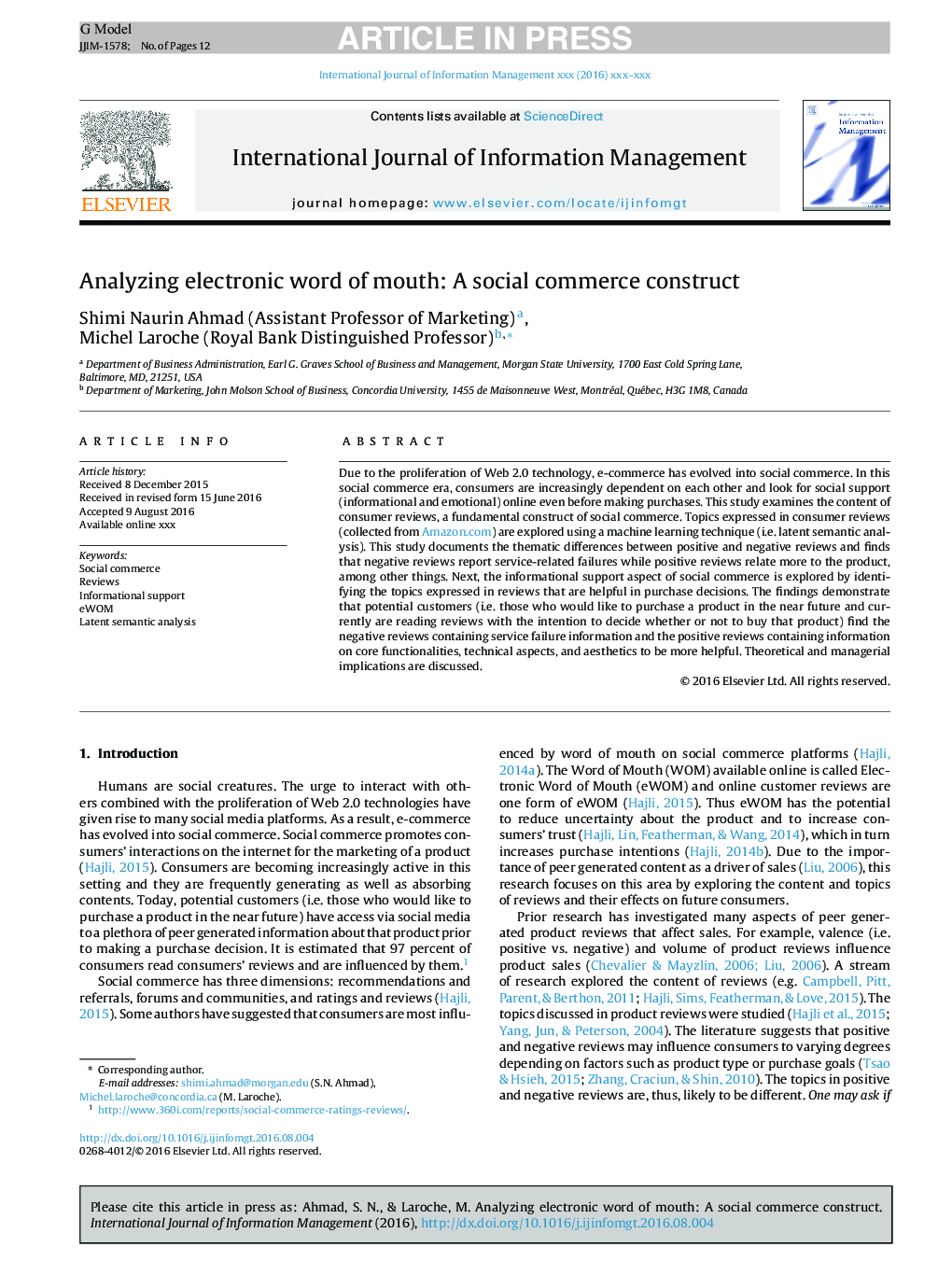| Article ID | Journal | Published Year | Pages | File Type |
|---|---|---|---|---|
| 5110804 | International Journal of Information Management | 2017 | 12 Pages |
Abstract
Due to the proliferation of Web 2.0 technology, e-commerce has evolved into social commerce. In this social commerce era, consumers are increasingly dependent on each other and look for social support (informational and emotional) online even before making purchases. This study examines the content of consumer reviews, a fundamental construct of social commerce. Topics expressed in consumer reviews (collected from Amazon.com) are explored using a machine learning technique (i.e. latent semantic analysis). This study documents the thematic differences between positive and negative reviews and finds that negative reviews report service-related failures while positive reviews relate more to the product, among other things. Next, the informational support aspect of social commerce is explored by identifying the topics expressed in reviews that are helpful in purchase decisions. The findings demonstrate that potential customers (i.e. those who would like to purchase a product in the near future and currently are reading reviews with the intention to decide whether or not to buy that product) find the negative reviews containing service failure information and the positive reviews containing information on core functionalities, technical aspects, and aesthetics to be more helpful. Theoretical and managerial implications are discussed.
Related Topics
Social Sciences and Humanities
Business, Management and Accounting
Management Information Systems
Authors
Shimi Naurin (Assistant Professor of Marketing), Michel (Royal Bank Distinguished Professor),
